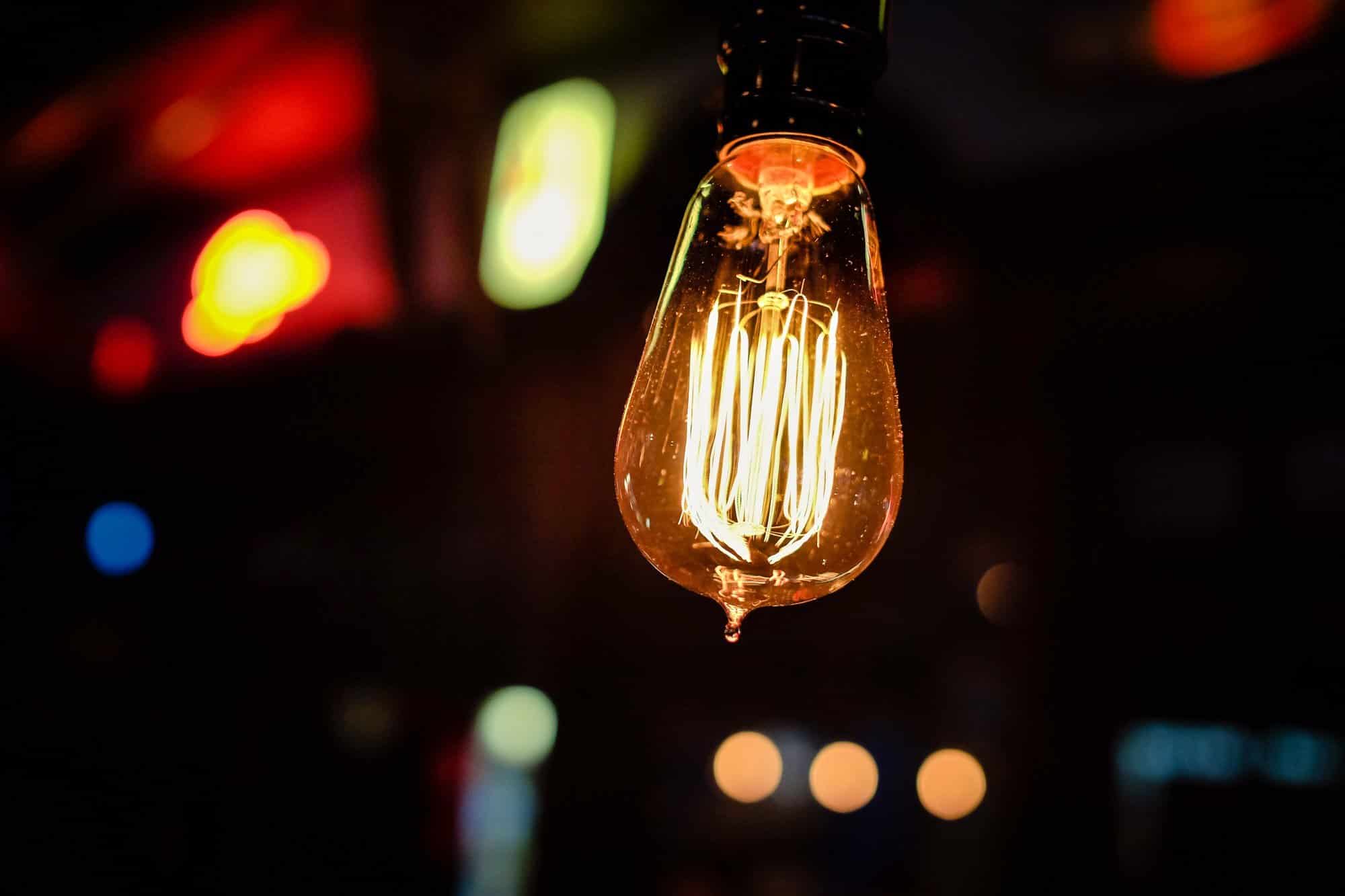9 Barriers to Extraordinary Life in 21st Century
We live in a world of Abundance and Lazy Consumption in the 21st Century. Pretty much everything we want is just a click away. Yet, our generation is more dissatisfied, more depressed and more unhealthy (physically, mentally, spiritually) than our previous generations. What are we doing wrong?
This is a list of uncommon, unchallenged ideas or habits we have in our time & age, that stop us from creating an extraordinary life. It’s a call out to the rebel in you to challenge each of these items.
Let’s start with an easy one 🙂
There is no
better time
to build
yourself

#1. Quality of life has only ONE KPI.
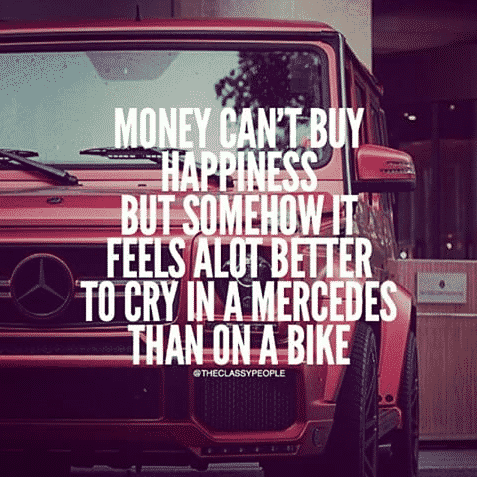
Money. Maybe 2 or 3 for some (answer this for yourself if you will). We give so much importance to financial success and almost nothing to any other area. And rightly so, many people give in everything to their jobs or businesses, anything that brings in money, and end up sacrificing all other areas of life.
What about your Intellectual life? Every animal on the planet has their strongest tool, Tigers have their Teeth, Eagles have their wings & sight, humans have their mind. We are not the strongest, nor the fastest, nor the biggest on the planet, yet we are the most dominant species on the planet because of our minds. What are we constantly doing to nurture our minds?
What about your Social Life? Studies show that number one factor that determines your happiness level, is your level of your social connections.
What about your Character? Your character will determine all the KPIs of your life anyway, how do we consciously focus to build it everyday?
What about your Spiritual Life? Humans have deep desire to be connected to a higher source, be it a religion, or Spirituality in general and connection to the universe? How do we grow as a spiritual being?
What about your Love Relationships? Over 40% of the couples divorce in America. One of the million amazing things Tony Robbin said was this “Love to me is not a feeling, it’s an Action”. What actions are you taking everyday to improve your love life?
A very interesting exercise to explore is Lifebook. Lifebook divides your life into 12 different areas (Financial life is #8 in that list), and create strategies for all of those 12 categories to create a more holistic life experience for ourselves.
#2. Fake Artificial Food Is Cheap And Real Organic Food Is Unaffordable.
“It would be so much easier (and cheaper) for the world to make organic food free, than to treat people for cancer for the last 20yrs of their lives”- Eric Edmeades
We are the smartest species on earth, but also we make the dumbest decisions about our own health.
The food marketing industry is more evil that tobacco industry and we don’t realise it.
Today we don’t even realise that we are sick, we have been sick for 15–20yrs because we were never supposed to be eating the stuff we have been eating all our lives.
So today when people have been obese all their lives, they just think it’s who they are.. If someone’s skin has been bad for 10 yrs, they don’t think it’s a problem anymore, it’s just who they are.
Our body’s survival software has been evolving & developing for millions of years, and it’s perfectly designed to make us survive the worst possible conditions imaginable. BUT, with the food choices we learn to make today..
- Most people are overfed and under-nutritioned
- Most people are constantly dehydrated with abundance of hydration sources 10 steps away (fruits, vegetables and water)
- New diseases are popping up every decade.
- How did we get to this point?
Here is a brilliant talk by Eric Edmeades who introduced me to this topic and has inspired thousands of people to make conscious decisions with their food. Do yourself a favour and watch this today:
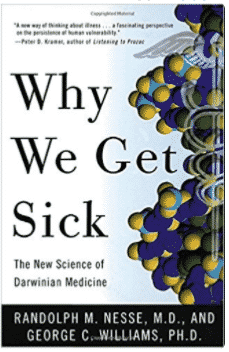
Another recommendation, a book about understanding our body from an evolutionary stand point – Why We Get Sick
Here’s an awesome testimonial of the book from Richard Dawkins (he is considered the modern age Charles Darwin): “Get two copies, and give one to your doctor”
#2. Fake Artificial Food Is Cheap And Real Organic Food Is Unaffordable.
All “Drugs” Are considered dangerous, but alcohol and smoking are acceptable everywhere.
In no way I am recommending to become a pothead or cokehead in life. But today, there is enough research available for us to understand that some substances (I am talking about Psychedelics) can have a therapeutic, and in some cases life-changing effect. People have to go to events like Burning man to be explore these things without being judged (not that I am complaining about Burning Man :)).
But people deserve to know exactly how psychedelics can benefit them and also potentially harm them.
If we categorise every substance in the world (except tobacco & alcohol) one category called “drugs”, and just have a taboo about all the “drugs” in the world, we don’t give people a chance to potentially change their lives in a certain area.
And the ones who are willing to explore this, might not get the best information about it because its not a popular subject to bring up with your friends and family.
Here is a interview of Tim Ferriss with a guy that studied psychedelics as a researcher for over 19yrs.
The Psychedelic Explorer’s Guide — Risks, Micro-Dosing, Ibogaine, and More
DISCLAIMER: DO NOT USE ANY DRUGS OR SUBSTANCES WITHOUT CONSULTING A MEDICAL PROFESSIONAL. THIS IS FOR INFORMATIONAL…
tim.blog

Get well informed, and make decisions for yourselves.
#4. Meditation Is Considered A Hoax or Woo Woo Stuff.
I hope most of the people reading this don’t feel that way, but a lot of people still think it’s fluffy stuff and sure.. you can use it to calm your mind. It is much powerful than that.
I mentioned in point #1, the tool of strength for humans, is the mind. It’s the reason why humans are the most dominant species on the planet. We gotta keep this tool sharp and in our control.
There are only 2 scenarios when it comes to mind control — either you control it, or the random world around you does. It’s better to have it under your control.
It should be done everyday, 7 days a week, 365 days a year. Cool thing is we sometimes do it without even knowing, it just needs to be a daily practice.
Think of it this way, you wake up, you brush your teeth, shower, get dressed, eat good breakfast etc and that’s your way of taking care of your body.
Meditation is taking care of the mind.
Here’s a few ideas to start:
- Practice any kind of specific breathing in the morning- try Pranayama. Start with 5 mins a day.
- Practice visualisation in the morning — you can do guided or just by yourself.
- Find a way to observe your thoughts or practice presence in the morning
I highly recommend mornings, because that sets the tone for the day. Here

#5. Our Memory is Considered Useless
Why use memory when I have all the technology in the world.
Phones are getting smarter and people, not so much..
Using memory is considered a waste of time and unproductive, and is replaced by technology.
Here’s a common argument:
Why in an age of smartphones, Google, Wikipedia, and ever present internet access, WHY would I bother training my memory?
Why do I want to remember names and phone numbers, my app does it for me?
Why do I have to calculate manually when my calculator in my computer works just fine?
Why should I invest in learning a new language, I will never need it now that Google glass and other advanced translating tech are already available?
Because when you stop using your brain, it starts becoming useless.
Boosting your memory has a direct relation with your creativity. Great thinkers of the ancient world recognise that creativity, focus and critical analysis could only happen in the minds of a well-trained memory practitioner.
Boosting memory and constantly learning new stuff is excellent for mental health. Better memory practitioners reduce their chances of Alzheimer by half.
“There is no learning without memory improvement.” Harry Lorayne, Father of Memory Improvement
Need more convincing, check these out:
The Father of Modern Memory Improvement Harry Lorayne: 60 Years of Mnemonics
Greetings, SuperFriends. Welcome to a very special episode of this week’s show. Today, we’ve managed to book, without…
www.becomingasuperhuman.com
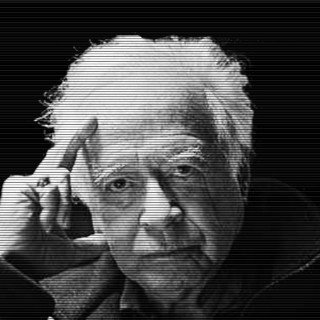

#6. The Education System
We want the latest Operating System even if the previous one had just come out a year ago, but the Education system can be a few hundred years old.
I refuse to follow that. I studied Computer Science Engineering at university. While in university, I was interested in Event Management, People Management, Sales & Marketing and Exploring new cultures. I studied all of that on my own time with my own dime.
Today, I am a Personal Transformation Enthusiast with the goal of creating the Disneyland of Personal Growth, Learning and Education. None if this came from my school/university.
Some of my smartest people I know are putting their lives on the line, taking a massive study loan over $100,000 to join the some university for a year or two.
In an age of exponential technologies, new models of work and entrepreneurship, location independence, and new definitions of what it means to lead a meaningful life — it’s time to rethink university. Here’s an alternative that a company that I work with is experimenting right now:

#7. The Overstimulation By The Media & Entertainment Industry
“The future will belong not only to the educated man, but to the man who is educated to use his leisure wisely” – C.K. Brightbill
Stick with me here for a minute..
Mihaly, best selling author of “Flow”, explains that we experience the optimal experience a.k.a “state of flow” when our mind is met with a challenge that just matches our skills.
The natural state of mind is chaos. It is neither useful nor enjoyable.
And state of flow is overcoming the “natural” state of the mind (chaos or psychic entropy).
With the massive growth in the media and entertainment industry, we can easily distract our mind with a passive leisure activity (the biggest example is Television).
But it’s a very poor substitute for “attention invested in real challenges” like creating something or investing in our skill development.
With so much distraction around us, our attention, in a way, is getting controlled by way too much useless external stimuli.
What can we do?
Once we understand why this happens to us, we can overcome our mind being controlled by the world around us.
Our mind is always seeking something to overcome it’s natural state of chaos or entropy, and overstimulation of external stimuli (which we have little control on) can temporarily fulfil that need.
And also understand that we can consciously choose how to consistently experience “the state of flow” through experiences that actually contribute to our personal development
Here’s an excerpt from the book “The Flow”, that conveys my point perfectly:
“Instead of using our physical and mental energy to have flow experiences, we spend hours each week watching celebrated athletes on TV, instead of making music, we listen to platinum records cut by millionaire musicians. Instead of making art we go to museum to admire paintings that brought in the highest bids. We don’t run the risk of acting on our beliefs but spend hours each week watching actors who pretend to have adventures, engaged in mock-meaningful action.
This vicarious participation is able to mask, atleast temporarily , the underlying emptiness of wasted time. But is a very pale substitute for attention invested in real challenges.
The flow experience that results from the use of skills, leads to growth; passive entertainment leads nowhere”
The lesson here is to use our free time wisely, not only because it leads to our personal growth, but also because it gets us in the Flow state.
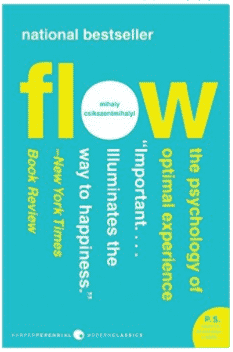
Interested in reading more on the subject, read the book,
#8. Waking up with Social Media
We all want to have total control over our lives, our emotions, our our goals etc, BUT we start everyday with the total opposite.
Most people wake up and the first thing they do in the morning is… you guessed it right.. check their social media.
Your mornings are the single most important determiner of how your day will unfold, and you give the control to Emails, Facebook, Whatsapp, Snapchat etc..
Here’s why it’s a bad idea:
- It takes your focus away
- It can prime you with negative emotions, because you don’t know what you will find in social media.
- It produces stress & anxiety
- Lastly.. surprise surprise.. it makes you lose control over how you want your day to go.
If this information is totally new to you (I hope not), here is a really interesting article for you 🙂
What can we do?
The answer is simple (but not easy): Have a morning routine.
The most effective people in the world have morning routines (all of them), because it’s the most important part of the day..
Tony Robbins starts his morning with a ritual to prime himself for success..
Robin Sharma created the 5am club which is followed by thousands of people today (I am still at 5:20am)
Here is a cool article that you will like about the recipe for creating the perfect day, everyday.
Biggest Myth About Having A Perfect Day
In a conversation with a friend about daily routine, she gave me a long argument that went something like this:
medium.com

#9. The “Follow Your Passion” Advice
Follow your passion and create the career you love..
..there is just one problem with that, this can be slightly misleading. Let me break down the “The Passion Hypothesis” ..
The Passion Hypothesis: The key to occupational happiness is to first figure out what you’re passionate about and then find a job that matches this passion.
People are often misguided by just rolling with this idea, and here’s why:
In the book ‘So Good, They Can’t Ignore You’, Cal Newport gives the following 3 conclusions from studying and negating passion hypothesis from closer look:
- Career passions are rare – most “passions” are really hobbies
- Passion takes time – a study showed that the strongest predictor for someone seeing their work as a calling, was number of years spent at the job. i.e. the more experience the person had, the more likelihood was to love their work.
- Passion is a side effect of Mastery – the better you get at something, the more it becomes a “passion”
With that said, it doesn’t mean that we shouldn’t try to turn our hobbies into our dream careers, but even the most successful musicians, artists etc don’t have the “Passion Mindset”..
They adopt something called the “Craftsmen Mindset” and focus only on the process of mastering their craft. Understanding this difference can help a lot of people make better decisions. Read the detailed description here:
#1 Misleading Advice in the name of Passion
In June 2005, Steve Jobs took the podium at Stanford Stadium to give the commencement speech to Stanford’s graduating…
medium.com
And that’s it. I hope this inspires some ideas on how you can start shifting your life in the direction you want. Would love to know your thoughts below 🙂
Love,
Gautam
We live in a world of Abundance and Lazy Consumption in the 21st Century. Pretty much everything we want is just a click away. Yet, our generation is more dissatisfied, more depressed and more unhealthy (physically, mentally, spiritually) than our previous generations. What are we doing wrong?
This is a list of uncommon, unchallenged ideas or habits we have in our time & age, that stop us from creating an extraordinary life. It’s a call out to the rebel in you to challenge each of these items.
Let’s start with an easy one 🙂
#1 Misleading Advice in the name of Passion
In June 2005, Steve Jobs took the podium at Stanford Stadium to give the commencement speech to Stanford’s graduating class. Wearing jeans and sandals under his formal robe, Jobs addressed a crowd of 23,000 with a short speech that drew lessons from his life. About a third of the way into the address, Jobs offered the following advice: You’ve got to find what you love…. The only way to do great work is to love what you do. If you haven’t found it yet, keep looking, and don’t settle.
When he finished, he received a standing ovation.
Now, this is where I want to introduce the most misleading advice in the name of passion…
There is no
better time
to build
yourself

Follow Your Passion and Create The Career You Love
Steve Jobs — a guru of iconoclastic thinking — put his stamp of approval on an immensely appealing piece of popular career advice:
The key to occupational happiness is to first figure out what you’re passionate about and then find a job that matches this passion.
What most people don’t know about Steve Jobs, in the time he started Apple Computer his actions were hardly the actions of someone passionate about technology and entrepreneurship. In other words, in the months leading up to the start of his visionary company, Steve Jobs was something of a conflicted young man, seeking spiritual enlightenment and dabbling in electronics only when it promised to earn him quick cash. Read full story here: Do Like Steve Jobs Did: Don’t Follow Your Passion
In the book ‘So Good, They Can’t Ignore You’, Cal Newport gives the following 3 conclusions from studying and negating passion hypothesis from closer look:
- Career passions are rare – most “passions” are really hobbies
- Passion takes time – a study showed that the strongest predictor for someone seeing their work as a calling, was number of years spent at the job. i.e. the more experience the person had, the more likelihood was to love their work.
- Passion is a side effect of Mastery – the better you get at something, the more it becomes a “passion”

How do we find work that we develop passion for?
There are 2 different approaches to thinking about work:
- The passion mindset: a focus on what value your job offers you.
- The craftsmen mindset: a focus on how much value you are producing at your job.
Most people adopt the passion mindset, but the craftsmen mindset is the foundation of creating/finding work that you love.
- When you focus on what your work offers you, it makes you hyper aware of the things that you don’t like about it, leading to chronic unhappiness. Especially true for entry level positions, which wouldn’t involve challenging projects and autonomy, these come later.
- The deep questions driving the passion mindset, “Who am I?” and “What do I truly love?” are essentially impossible to confirm. Is this who I really am or truly love, are rarely a clear Yes or No responses.
In other words the passion mindset is gonna keep you perpetually unhappy and confused.
Elliott took $50,000 in credit card debt and invited over 50 digital entrepreneurs for a weekend in 2008, but then he was on to something..
The following year, 200 people came and this time, they paid for themselves.
The year after 700 people came, and they paid.
Today, he gave birth to what we call the Summit Series. It’s one of the most exciting business conferences in the world and people like Richard Branson and Jeff Besos attend and speak at that conference.
Elliott was voted as INC. Magazine’s Coolest Entrepreneur of the Year 2009.
Did you notice what he was doing?
He was bringing together people with similar interests, similar problems, and similar lifestyles together. And that is the most powerful ingredient of our education, our tribe.
Craftsmen Mindset
There’s something liberating about the craftsman mindset: It asks you to leave behind self-centered concerns about whether your job is “just right,” and instead put your head down and plug away at getting really damn good. No one owes you a great career, it argues; you need to earn it — and the process won’t be easy.
Put aside the question of whether your job is your true passion, and instead turn your focus toward becoming extremely valuable.
Regardless of how you feel about your job right now, adopting the craftsman mindset will be the foundation on which you’ll build a compelling career.
Adopt the craftsman mindset first and then the passion follows.
If you want to love what you do, abandon the passion mindset (“what can the world offer me?”) and instead adopt the craftsman mindset (“what can I offer the world?”).
How to Adopt the Craftsmen Mindset?
Constantly push your boundaries
Constantly seek new ways to get better. It could be anything that’s related to your ideal work — reading books, blogs, watching webinars, attending seminars implementing & testing new learnings etc,
You see, people get from average to good very quickly at first, but once they get comfortable, they stop getting better because they are not stretching themselves.
We need to train ourselves to constantly get better through pushing ourselves. Identify a clear, specific goal based on something that you’re not quite able to do yet, and push yourself beyond your comfort zone to get there.
Consistency
Every time we have to learn something new, there is a burst of inspiration that gets us through the first month or so, and then we start to slow down. The most successful people are the ones who are most consistent.
Time block your ‘craft practice’ everyday. Once its in your calendar, just dive into it everyday(even if it is for an hour). I noticed some resistance for myself when I was starting this process, but forcing me to ‘just start’ everyday at the same time, got me in the habit to not even letting my doubting/questioning mind come in this process.
This has a compounding effect on whatever you want to get better over time. You will be surprised to see how fast you grow in a few months and it will keep getting better.
Honest Feedback
Even if it means to destroy what you previously thought was good.
Cal Newport suggests to use money as an indicator of the value of your skill. You know you’re getting better at something if more money is being offered to you in your job or business.
Be patient
Craftsmen mindset offers a long-term payoff in creating Mission-oriented and Successful career. We have to be patient and consistent with the efforts.
I had been a firm believer of Following your passion in life, until I came across this information. It shifted my paradigms in the way I view passion and especially in my work. This compelled me to share it as there are many young people unsatisfied in their work because they believe they aren’t passionate about it, and don’t know how to find work that is fulfilling to them, which they can call their Passion or Calling.
I hope this inspires you to go on the path to create mission-driven work for yourself that you can call your passion.
Love,
Gautam
Footnotes
This post is completely inspired by the book ‘So Good, They Can’t Ignore You’, by Cal Newport. Highly recommended book for anyone who wants to go more in-depth in what it means to be passionate about your work, having mission-driven career and HOW to get there.
Let me know what your thoughts on finding/creating career passion, this does start very interesting conversations.
In June 2005, Steve Jobs took the podium at Stanford Stadium to give the commencement speech to Stanford’s graduating class. Wearing jeans and sandals under his formal robe, Jobs addressed a crowd of 23,000 with a short speech that drew lessons from his life. About a third of the way into the address, Jobs offered the following advice: You’ve got to find what you love…. The only way to do great work is to love what you do. If you haven’t found it yet, keep looking, and don’t settle.
When he finished, he received a standing ovation.
Now, this is where I want to introduce the most misleading advice in the name of passion…
How to Use Willpower On Command
“Willpower is the key to success. Successful people strive no matter what they feel by applying their will to overcome apathy, doubt or fear.” – Dan Millman
Before we start, consider the following statements:
“Even when I’m trying to eat healthy, sometimes I can’t help but reach out to that fresh warm cookie.”
“I promised I will go to the gym, but I was too tired in the evening and I skipped.”
“I know I have to study for the big test coming up, but I will watch another video, or chat with a friend for a bit.”
“I know I have to finish an important task, but I get distracted and often the task gets pushed to sometime later.”
Have you felt something similar before? If you haven’t, here’s a hot GIF of Megan Fox as a thank you for your time. But if you are like most people, you have faced this.
You’ll probably still click on Megan Fox GIF, especially if it’s late in the evening. it’s understandable, and is explained below 🙂
Willpower is the ability to deliberately exert control over oneself to do something or to restrain one’s own impulses. It is one of the most powerful tools one can use to have breakthrough success in any goal achievement. But to use it to its full potential, we have to first understand how it works. My goal here is to break down all aspects and myths about willpower and its application.
You see, the biggest misconception about willpower is that we can conjure it at will. And we plan our goals with this assumption, and often fall off the wagon.
Willpower is a limited source of physical energy, and must be managed well. Just like your muscles, if you constantly put them under stress with exercising, at one point, that dumbbell will fall off your hand. The more you put your willpower to use the more it depletes, and as you reach the end of the day, that’s the time you reach out for that cookie even when you decided you won’t.
There is no
better time
to build
yourself

Your willpower is more about the timing than anything else
There are times when we are extremely concentrated and determined to achieve a goal and accomplish extraordinary success. And then there are times where we are just not driven or motivated, and we wonder ‘why am I unable to deliver something that is really important to me, or why am I procrastinating?’
The key here is the awareness that our willpower is more about timing than anything else. It’s like seeing what goes behind a magic trick – once you have seen it, you are no longer amazed by the mysterious magical effect, rather you understand the mechanism behind it.

Two things to know to control your Willpower
#1. What is the single most important thing you want to do in the day?
That’s what you should be saving your willpower for. Identify what is the Single Most Important thing you want to achieve from your day. In all probability, this task will involve difficult cognitive reasoning or self-control.
probability, this task will involve difficult cognitive reasoning or self-control.
Even though it sounds easy (and it is), you should answer this question for yourself as you will give this task focussed energy.
To have optimal results, plan your day in advance, a night before or early morning, and you’ll know what requires your focussed energy for the day.
#2. What are the things that tax your willpower? You want to avoid that until you achieve the goal of the day.
Things that tax your willpower:
- Implementing new behavior
- Filtering distraction
- Resisting temptation
- Suppressing emotion
- Restraining aggression
- Suppressing impulses
- Taking a test
- Coping with fear
- Doing something you don’t enjoy
- Selecting long term over short term rewards
- Trying to impress others
A lot of things mentioned in this list may be used to achieve your most important goal for the day. If you use them elsewhere, which is easy and something that happens if you are not prepared, your goal achievement will suffer.
SOLUTIONS
1. Start with most important goal, first thing in the morning
The simplest solution is to deliberately put the most important thing of the day in the morning as your willpower muscle is well rested and charged for the unfolding of the day. It will be the easiest time to resist temptation or selecting long term over short term. So the project you are working on, studying for the test that’s coming up or exercising everyday – do it in the first part of the day.
As you go through the day, there are many things that will tax your willpower. And once you are running low on it, that’s when you reach out for that cookie when you are trying to eat healthy, or that Megan Fox’s GIF even when you want to read the post 🙂
The best solution is to go all-in with your goal achievement when you are fully loaded.
Many high achievers already follow this principle, and there is a reason they get so much more done with the same 24hrs everyone has in a day. Check out Robin Sharma’s 5am club, which I find as a brilliant example. Want to know more about having perfect days? read Biggest Myth about having a perfect day.
2. Food refills mental energy
The nervous system consumes more glucose than most other parts of the body and effortful mental activity appears to be especially expensive in the currency of glucose.
When you are actively involved in difficult cognitive reasoning or engaged in a task that requires self-control, your blood glucose drops, the effect is analogous to a runner who draws down glucose stored in the muscle during a sprint. This effect could be undone by ingesting glucose and this has been confirmed in several experiments.
That’s why another time when you display stronger willpower is right after meals (and the worst, right before lunch/dinner time).
Eat timely, the blood glucose level plays an important role in your willpower demonstration. Don’t skip meals and eat healthy so it doesn’t cloud your mind.
3. Work in willpower tax-free zone
When you clear your path to success, that’s how you consistently get there.
Your physical surroundings matter – when deep focus is required for a task, work in ‘willpower tax-free zone’ to avoid all the things that deplete your willpower. Hide, go off the radar, turn off the phone while you are focussing your willpower to get something done.
When studying for a test, your study room>public library>Starbucks cafe
4. Take breaks
A small break goes a long way. It’s a great energiser when you are invested in a task that involves a few hours at once.
Take breaks, but preferably not involving a willpower taxing element in it. Listen to your favorite song (or dance to it), stretch, take a small walk, or take a small nap.
And that’s it.
Now, I urge you to find your own best recipe for success, there is no one-size-fits-all solution to this, different people have different productive hours and willpower boosters. This post aims at maximising your productivity by understanding the role & application of willpower, so you never again miss a goal you set for yourself.
Let me know your thoughts and how it goes for you below.
Footnotes
I am passionate about studying human behavior, and this post highlights my personal learnings by testing different frameworks I have come across over the past few years. If you are interested in this subject, the following books are the ones that I will highly recommend:
- Stumbling on Happiness by Daniel Gilbert, the founder of Brainpickings.org has rightfully deemed this book as a mandate for humanity.
- Thinking, Fast and Slow by Daniel Kahneman, Written by The Nobel Prize Winner, Daniel Kahneman, the book is an inventory of all the amazing features of human behavior and all the potholes we fall into over and over again, based on scientific experiments.
- The ONE Thing by Gary Keller, This is by far the most practical, informative, and actionable book I have read on Goal Achievement and Productivity.
Welcome to the LifePlugin Summit, where every moment is an opportunity to explore the extraordinary depths of personal growth and healing. Imagine a place where the power of Quantum physics, the ancient wisdom of Shamanism, and the transformative practices of breathwork and yoga converge. This is not just a summit; it’s a portal to a new dimension of self-discovery, tailored for those who seek to unleash their full potential and lead a life brimming with vitality, joy, and abundance.
Biggest Myth About Having A Perfect Day
In a conversation with a friend about daily routine, she gave me a long argument that went something like this:
“… I am unable to have enough time in the day, there is way too many things to do. Some days, I am unable to go to the gym, because I am too tired, or not motivated, or feeling low because of the day and feel like rewarding myself by relaxing. I don’t feel too happy to start work somedays, I guess I am moody…”
This conversation went for about 15 mins, I have heard similar challenges from many people, and I have had these challenges myself in the past.
So, the question is, how do I have a perfect day?
The answer is – you can’t.
Not by careful planning of the activities of the day or having just a positive attitude towards the day or life. These things will certainly help though.
Why? Because we don’t have full control on how the day will unfold, what are the unplanned things/conversations that will tax us or distract us from our vision of a perfect day.
Let’s start with what constitutes the perfect day, make your own list, here is mine:
- Productivity. Getting shit done. Whatever are my tasks (ideally, just ONE thing), that’s contributing to my future success professionally.
- Exercise
- Feeling driven and excited for the day, full of energy.
- Inner peace. Like Kung Fu Panda
- Positive experiences with people that I work & live with.
- Giving. Taking care of my colleagues, family, friends in whichever way I can.
There is no
better time
to build
yourself

For a lot of the things in the list, we require some concentration/focus/determination, which requires willpower. And sometimes, we are unable to conjure willpower at will, which is why sometimes we do everything we want to do in our day (and more), and other times its rather difficult. Willpower is an amazing tool and there are simple ways you can adopt to have a command on your willpower.
Now, back to the question of having a perfect day, how do we make sure that we have energy (willpower is also physical energy) to fulfil our requirements of the perfect day, everyday.
Here is the answer:
The goal should not be having a perfect day, rather having a highly energised start to the day. Positive energy creates positive momentum.
Gary Keller in his incredible book ‘The ONE Thing’, mentions how highly effective people have a highly energised start of the day:
Highly effective person’s daily energy plan:
- Meditate & pray for Spiritual energy
- Eat right and exercise and sleep sufficiently for Physical energy
- Hug, kiss and laugh with loved ones for Emotional energy
- Set goals, plans and calendar for Mental energy
- Time block your calendar till you get the ONE thing of the day done, for Business energy
Does this work? Hell yes. Since I have organised my mornings to cater to the model above, my productivity has skyrocketed and I can’t wait to start my days everyday.

Here is how I have been starting my days and have been working phenomenally for me:
5:20am: Wake up to the most beautiful woman, spend 15–20 mins with her just being hopelessly romantic.
6:00am – 7:10am: Hit the gym, Crossfit, because it’s just awesome.
7:10am – 7:40am: Shower, get ready for office, protein shake and/or fruits
7:45am – 8:20am: Meditate
8:30am – 10:45am: Disappear for everyone (no phone, emails, FB) until I get the most important thing of the day done and plan the rest of the day.
10:53am is when my first office meeting starts and by this time I am done with most important items of the day and overflowing with energy.
I highly recommend planning your start of the day so you energise yourself with as much Spiritual, Physical, Emotional, Mental and Business energy as you can. And you will start to notice a major shift in your life.
Love,
Gautam
Let me know your recipe for a perfect day in the comments below
Wheel Of Modern Education
On Sept 9 2017, I went on a TEDx stage in one of the best universities in Malaysia, and started my speech by saying “I am here to make you quit your university today”.
I was expecting dead silence, but instead I received a big round of applause in the first 10 seconds of my speech.
Awesome!
The reason I mention that is because I believe there is a deep explanation for that surprising response..
You see, we all know that our standardised education system is outdated, we talk so much about it and keep beating that dead horse. What we are really seeking now, is a solution to escape that outdated system and not face the consequence of being a failure in life.
And I am here to suggest that solution.
It is a continuous circle with 3 fundamental elements, that I call the Wheel Of Modern Education, and it empowers anyone to sit in the driver’s seat of their own education, and design their own life.
Let’s begin.
There is no
better time
to build
yourself

THE AGE OF SELF-EDUCATION
We know that the “standardised” education system is outdated, it was built for the industrial age and hasn’t been updated for over 100 yrs.
We don’t live in the age of standardisation, we live in the age of customisation (the information age) and for the first time have the privilege to customise our own education like never before.
There are websites like edx.org where you can take all the classes that MIT students take today, for free.
Or you can go on udemy.com and buy any course below $200 from photography to programming, turn your passions into professions.
We have that privilege today.
We have never had this much and this easy access to information before.
But if customised online education alone was the solution to the problem, we wouldn’t be talking about changing education system today.

YOUR TRIBE
Customised self-education is important but is not the only thing that matters. And unfortunately, even the most forward thinkers of our times only focus on this aspect of “Self-education”, and miss THE MOST POWERFUL aspect of our education.
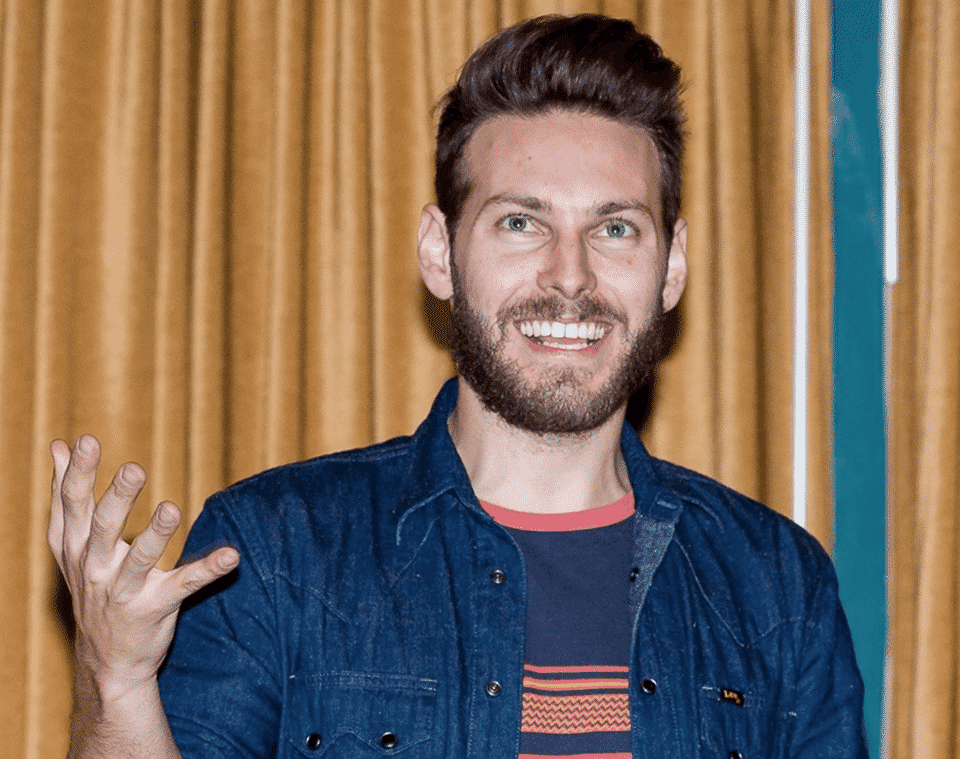
The story of Elliott Bisnow is the perfect example for how you take your education (and your life) to the next level.
In 2008, the 23yrs old Elliott was starting out as a digital entrepreneur living in Utah, a very cold State in USA.
As an entrepreneur he needed to learn & educate himself constantly. He had a lot of unanswered questions and didn’t know who to ask. So he picked up the phone, and started calling all the successful young entrepreneurs in the country. The calls went something like this..
“Hey, I am starting out as a digital entrepreneur, and I am inviting some really cool digital entrepreneurs to hang out for a skiing trip in Utah, would love for you to join. And you know what, I will pay for your trip”
Elliott took $50,000 in credit card debt and invited over 50 digital entrepreneurs for a weekend in 2008, but then he was on to something..
The following year, 200 people came and this time, they paid for themselves.
The year after 700 people came, and they paid.
Today, he gave birth to what we call the Summit Series. It’s one of the most exciting business conferences in the world and people like Richard Branson and Jeff Besos attend and speak at that conference.
Elliott was voted as INC. Magazine’s Coolest Entrepreneur of the Year 2009.
Did you notice what he was doing?
He was bringing together people with similar interests, similar problems, and similar lifestyles together. And that is the most powerful ingredient of our education, our tribe.
Find your Tribe.
You see, human beings are social animals. We naturally seek connection with people who are like us; people with similar interests, similar problems, similar lifestyles. And we thrive in that environment, that’s where we share the latest practices, we learn from each other, we teach each other and grow TOGETHER, as a Tribe.
This is the hidden element of modern education that unlocks massive success and fulfilment.
And it’s never been easier to find your Tribe.
If you are a programmer today, you can go on topcoder.com, they have turned programming into a massive online multi-player game. They make money there by taking on projects, but they compete with each other, they teach and learn from each other and grow together as a Tribe.
And there is a Tribe for literally everything, it doesn’t matter if you are a programmer, a musician, a photographer, a doctor, a dancer, an entrepreneur, you name it. All it takes is a Google search.
In the world we live in today, its never been easier and more important to find your Tribe.
And when you find your Tribe, something really interesting happens.
DEEP IMMERSIONS
On May 28, 2017, I landed in Barcelona and joined about 400 people from 50 different countries that relocated to Barcelona for a month to go deep into the field of personal transformation. This event was called Mindvalley U
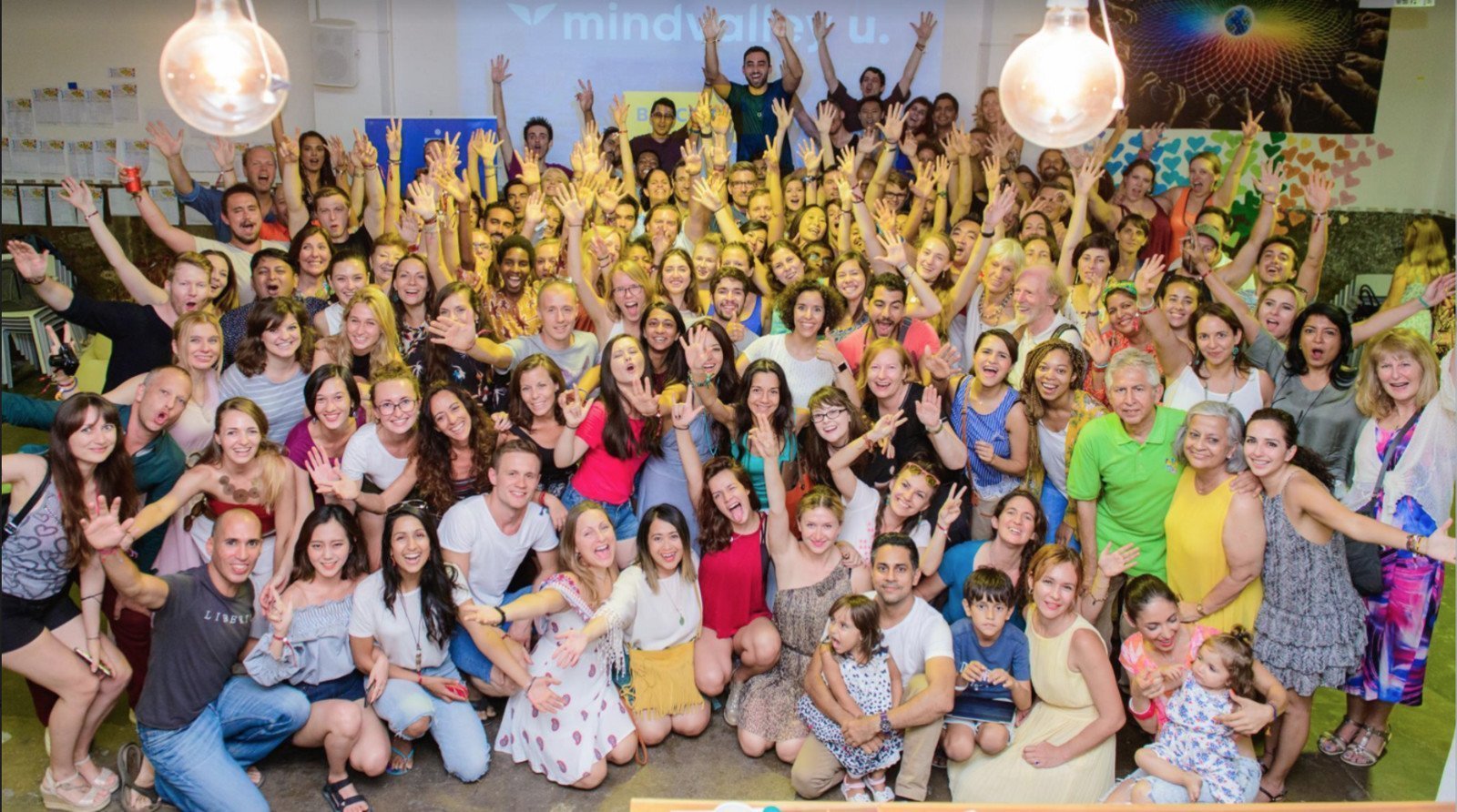
For the next 30 days, in the day we would have inspiring workshops & classes from some of the best teachers in the world, and in the evenings we had spaces to connect deeply & meaningfully with our Tribe. We partied in the streets of Barcelona, had dinners and deep conversations with each other, and reinforced our connections with our Tribe.
This is what I call, a Deep Immersion.
Deep Immersions are powerful. These are events that happen for a really short period of time where you come together with your Tribe and go deep into your interests, stir some emotions, have a lot of fun, and create lasting memories.
Every time I come back from any event like this, I come back with a list of books I want to read, courses I want to take and classes I want to enrol in. That ties back into my “Self-Education” again.
THE WHEEL OF MODERN EDUCATION
And that’s how Self-Education, My Tribe and Deep Immersions form what I call “The Wheel of Modern Education”.
The beauty of this framework is that you can start at any one of the 3 places and one leads to the other, and it never ends..
.. and why should it end, when our education is this exciting and fulfilling 🙂

Wheel Of Modern Education by Gautam Khetrapal
You see, we idolise people who quit their education and do great things in the world; our Mark Zuckerbergs, our Elon Musks, our Einsteins, our Richard Bransons, our Mark Twains..
But if we look closely, the smartest people in the world, the Outliers, the Game-Changers, the Moonshot takers..
..they NEVER quit their education, they simply escape the outdated education system.
I hope this opens your mind to a different perspective of education, and you take this framework to drive your own education.
You can watch my TEDx talk on “The Wheel Of Modern Education“, to see how I apply it in my own life and how this is really a template that enables us to become the Dean of our own never-ending University.
I would love to know what you think about this framework and how you have been driving your own education in your own life. Let me know in the comments below 🙂
Love, Gautam



